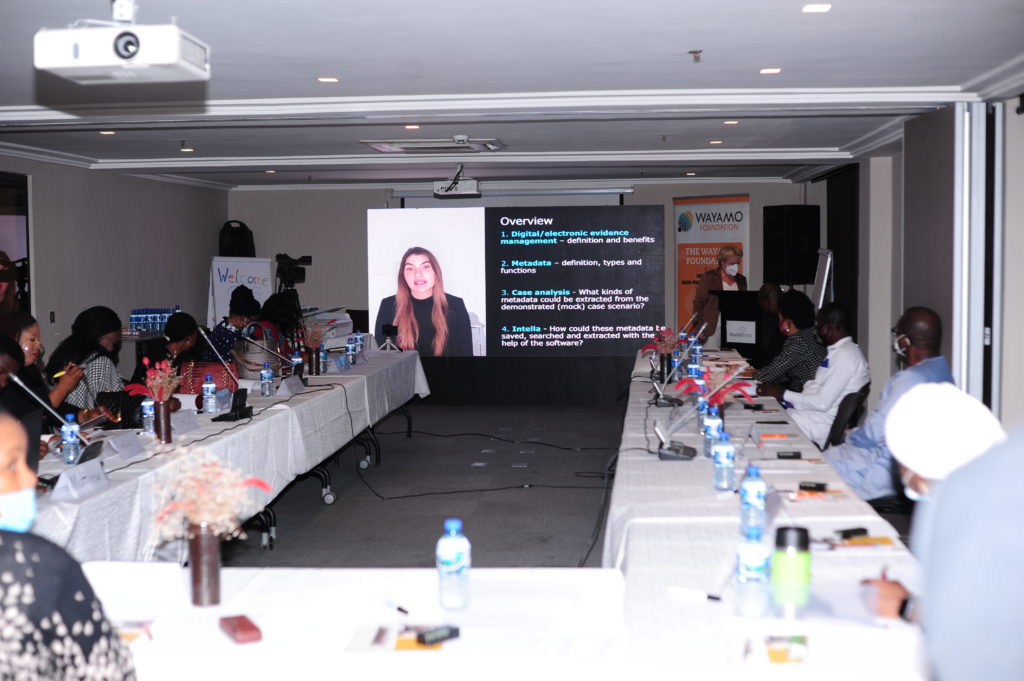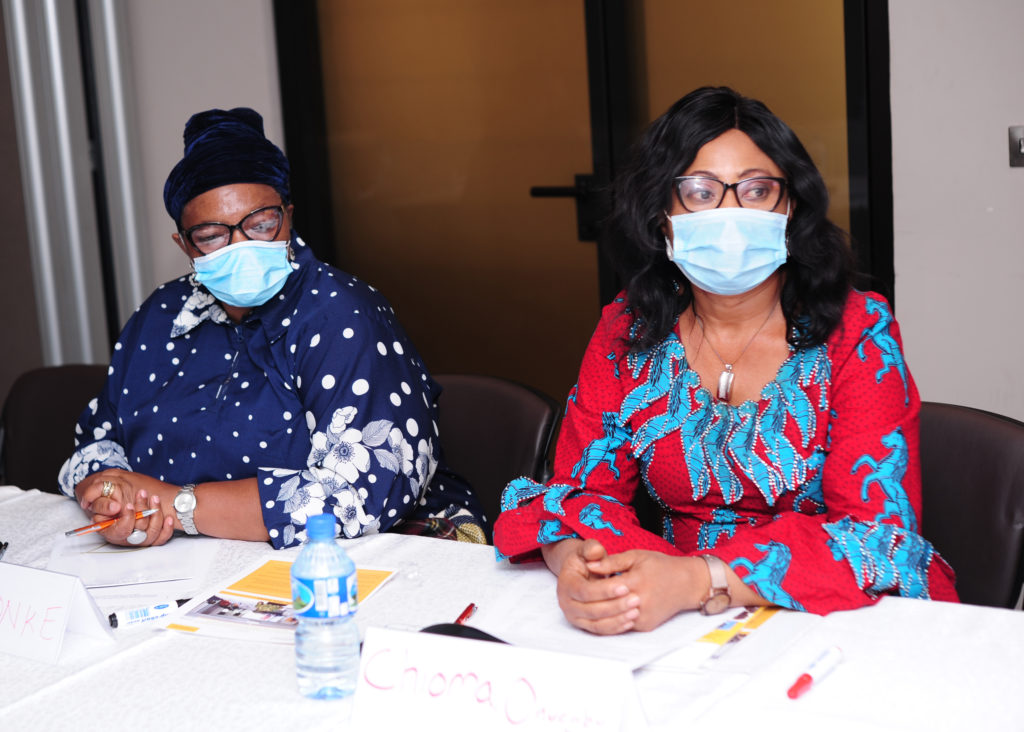On 5 February 2021, the Wayamo Foundation launched its next project: the creation of an electronic case-file database within the Complex Casework Group (CCG) under the Directorate of Public Prosecutions. The Abuja workshop followed a hybrid model, with CCG members attending in person, and the majority of the experts -both international and Nigerian- joining the event via Zoom.
This electronic case-file database will initially serve as a repository for terrorism files and their corresponding judgements. With time, it is envisaged that it will develop into an efficient and comprehensive electronic case-management system. In addition, it could serve as an evidence storage site that would allow the CCG prosecution coordinator to have an overview of criminality in the north-east, plus all evidence collected up until the present.
This database will also serve to build more complex cases which may address international crimes that fall under the jurisdiction of the International Criminal Court (ICC).
The event was officially opened by Wayamo Director, Bettina Ambach, and by Deputy Director of Prosecutions and Head of Complex Casework Group, Chioma Onuegbu, on behalf of Director of Public Prosecutions, Muhammed Umar, who was unfortunately unable to attend. On unveiling and donating a special scanner to the CCG for evidence-scanning purposes, Bettina Ambach announced that an evidence-management software package and specialised training on how to use it would follow within a fortnight or so.
After delivering a 20-minute video lecture on ‘Evidence management, metadata completion and case-file metadata analysis’, legal researcher and data-management expert Rebeka Juhosová then joined participants via Zoom to answer questions. She was followed by Akingbolahan Adeniran, Attorney-General and Commissioner for Justice of Ogun State, Nigeria, who was present in person and spoke on the subject of ‘Electronic databases and successful prosecution coordination’. His presentation was highly interactive in nature, characterised by group exercises and an open flow of conversation throughout.

Rebeka Juhosová, legal researcher and data-management expert, delivered a video lecture on ‘Evidence management, metadata completion and case-file metadata analysis’
Michael Lees, former OTP Head of Knowledge Management, Information and Evidence, now joined the workshop via Zoom to go through ‘The first steps to set up an electronic case-files/evidence database’. Next up was Sofia Candeias, UN Team of Experts on the Rule of Law and Sexual Violence in Conflict, Office of the Special Representative of the Secretary-General on Sexual Violence in Conflict, who addressed the use of electronic evidence from a very particular angle, i.e., to build conflict-related sexual violence cases.
In the afternoon, Wayamo lined up two more Zoom sessions. On the other side of the Atlantic, Jay Morse, retired U.S. Army Lieutenant Colonel judge advocate, and Founder of Faro International devoted the early hours of his day to speak to participants about witness and suspect interrogation. Similarly, Don Cinnamond, Former Clerk of Court for two U.S. district courts, former legal reform advisor and court administration advisor in Africa, Europe, and Asia, also got up early to deliver a TED talk and answer questions on electronic court management systems and their advantages.
The workshop was wrapped up by Akingbolahan Adeniran, who took the participants, step by step, through the process to be implemented by the CCG in order to get the project of creating an electronic case-file and evidence database off the ground.

Participants
The comments in the course evaluations provided valuable insight. One participant said that ‘the creation of the electronic case-file database might take time but we will get there.’ Another pointed out that ‘organising details about various cases with the help of technology is paramount to putting things into perspective and can help the Ministry in the future’. More poignantly, however, one participant wrote that ‘it is only our little beginning’. Indeed, this project launch represents only the first step of an ambitious, long-term venture to digitalise case files and evidence, something that will hopefully enable prosecutors to build more thorough and better researched terrorism cases, which will also address ICC criminality. The will and determination of the participants is there, and the end goal is clear: to further strengthen justice and accountability in Nigeria.


